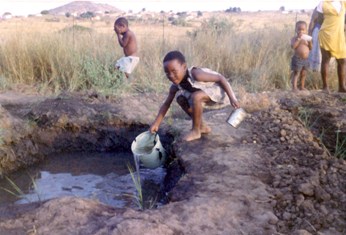
As the debate rages on about health care, issues of basic rights and essential services are the focus of much discussion. Just what should our government provide for us? If services are provided, how much should each citizen get?
In South Africa today and tomorrow, the Constitutional Court will be looking at exactly those questions. And their conclusions will be instructive.
When I lived in Cape Town and Johannesburg, the most shocking difference, and there are a lot of differences, was the lack of water fountains. We expect, in North America, to pause on our bike ride or run by a standing tap to fill up our water bottles. Practically speaking, those without homes, can do the same - ensuring that, of the many ailments plaguing our poorest citizens, dehydration won't be top of the list.
In the southern part of Africa, water is a scarce resource, kind of like trying to find a knee surgeon in rural Illinois.
When the Apartheid government crowded Black South Africans into townships to provide cheap labor for the adjoining white neighborhoods, water was provided free to every home. Fifteen years after Mandela's victory, water is sold, at a profit, to most township homes. Those who cannot afford to pay are provided with just enough water per month, per household to flush the toilet a few times a day.

Those cholera outbreaks that make the news every few months are no accident. They are the product of a government that decided essential services don't need to be provided for free.
Well, residents of Johannesburg grew tired with the lack of government support and brought a legal challenge to the water privatization scheme. In the lower courts, their argument for government-provided essential services has been accepted. We will soon see what the high court has to say about free basic water for all.
South Africa's constitution is very different from that of the United States. They have the tools to demand essential services in court and we are left with political wrangling in Washington. But the argument is the same.
If the government abandons the most basic needs of its population, the result is widespread disease and death. It may be cholera in South Africa and swine flu here in the North, but the consequences will be dire.
Let's hope that the Constitutional Court and the U.S. court of public opinion come to the right conclusion and accept responsibility for essential services.
